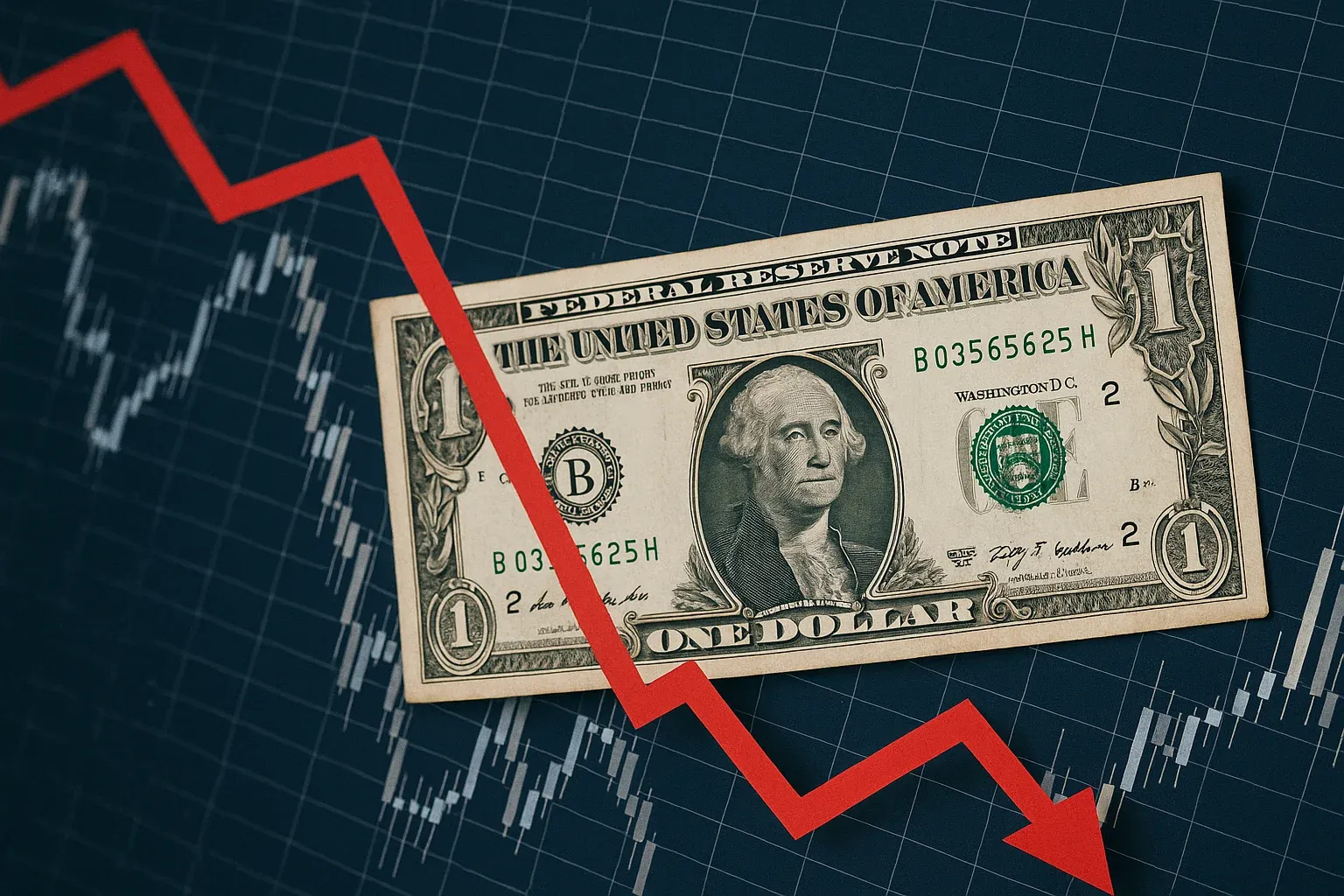
April 21, 2025 – The US Dollar Index (DXY), a measure of the dollar’s value against a basket of six major currencies, has plummeted to its lowest level since February 2022, sparking concerns about a potential "confidence crisis" in the world’s reserve currency. The index, which tracks the dollar against the euro, yen, pound, and others, has fallen nearly 10% since its January peak, with a 7% drop in the Bloomberg Dollar Spot Index, a broader gauge, signaling widespread weakness.
The primary driver of this decline is the escalating trade war initiated by President Donald Trump’s aggressive tariff policies, announced on April 2 as part of his "Liberation Day" agenda. Tariffs targeting China and other trading partners have rattled global markets, leading to a sell-off of US assets, including Treasuries and stocks. The S&P 500 (NYSE: SPY) lost over $5 trillion in value in the three days following the announcement, and US Treasuries, traditionally a safe-haven asset, saw their worst sell-off in over two decades.
Investors are increasingly shunning dollar-based assets due to fears of a trade war-driven recession and uncertainty over Trump’s unpredictable policy moves. Former Treasury Secretary Janet Yellen noted that the simultaneous decline of US stocks, bonds, and the dollar is highly unusual, reflecting a "paralyzing uncertainty" for households and businesses. Deutsche Bank analysts have warned of a "dollar confidence crisis," as the US, which accounts for 54% of global exports and 60% of bank deposits in dollars, faces questions about its economic stability.
The dollar’s slide has been exacerbated by a decoupling from US Treasury yields, which typically bolster the currency. Despite a surge in 10-year Treasury yields to 4.4%, the dollar has continued to weaken, suggesting investors are reallocating capital away from the US.
Trump’s Treasury Secretary, Scott Bessent, has attempted to downplay the decline, asserting that the dollar remains the "global reserve currency." However, his optimism contrasts with market sentiment, as the euro has soared to a three-year high against the dollar, and the yen has gained significantly. Analysts from UBS and ING suggest that the euro’s strength reflects a broader shift toward European assets, driven by Germany’s loosened fiscal rules and a loss of confidence in US exceptionalism.
The Federal Reserve’s position adds further complexity. Concerns about the Fed’s independence surfaced after comments from the Economic Council director about potentially removing Chair Jerome Powell, prompting a sharp market reaction. With the Fed cornered—unable to hike rates without risking recession or cut rates amid inflation fears—investors are betting on alternative assets like gold and cryptocurrencies, which have risen as the dollar weakens.
While some, like Reuters columnist Joachim Klement, argue that the dollar’s decline represents a healthy rebalancing of global capital after years of US asset dominance, others warn of deeper risks. The dollar’s role as the backbone of global finance, with nearly 70% of international bonds quoted in dollars, hinges on confidence in the US economy and legal system—both of which Trump’s policies are undermining.
As markets brace for further volatility, the dollar’s trajectory remains uncertain. Trump’s recent signals of openness to trade negotiations with China and a 90-day tariff pause (excluding China) have offered temporary relief, but analysts remain bearish.






